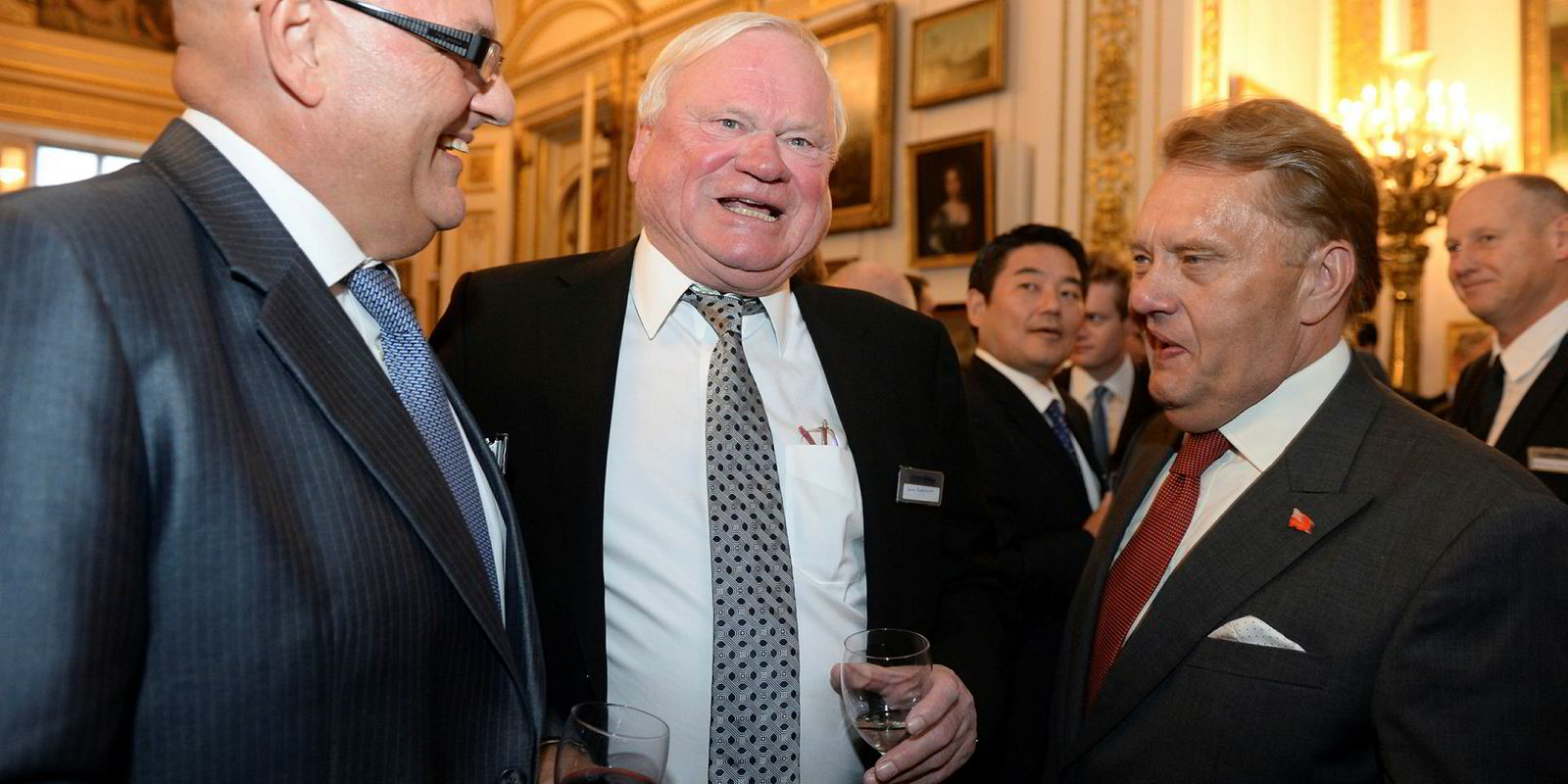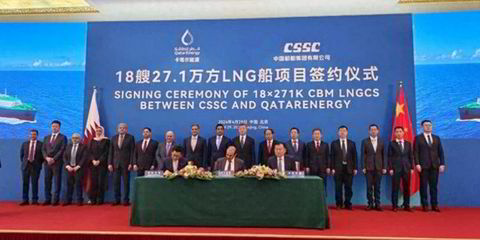When David Marcus walked into his first shipping conference in New York City during the early days of 2016 he wondered if he was at the right event.
The Baltic Dry Index was at all-time lows, dry cargo stocks were down 90% on average and people were acting as if the industry was going to implode, the Evermore Global Advisors co-founder says.
“Everybody was practically in tears. It was amazing,” Marcus tells TradeWinds. “The management, the main shareholders — be they Norwegian or Greek — the bankers. I swear, we thought, did we go to the wrong place? Are we at a funeral?”
The humour was equally dark on the day. Star Bulk Carriers president Hamish Norton looked at Marcus’ name tag and quipped, “Evermore? I bet you have never invested in this industry in the history of your firm. If you had, your name would not be Evermore, it would be Nevermore,” Marcus recalls. Only after that wry comment did Norton introduce himself.
While others may have been put off by the opening scene, Marcus and his colleague from Evermore liked what they saw. “We were practically giddy,” he recalls. “Why? We had no money working in these companies. We had never invested here before. We looked at some of the companies and thought this is crazy.”
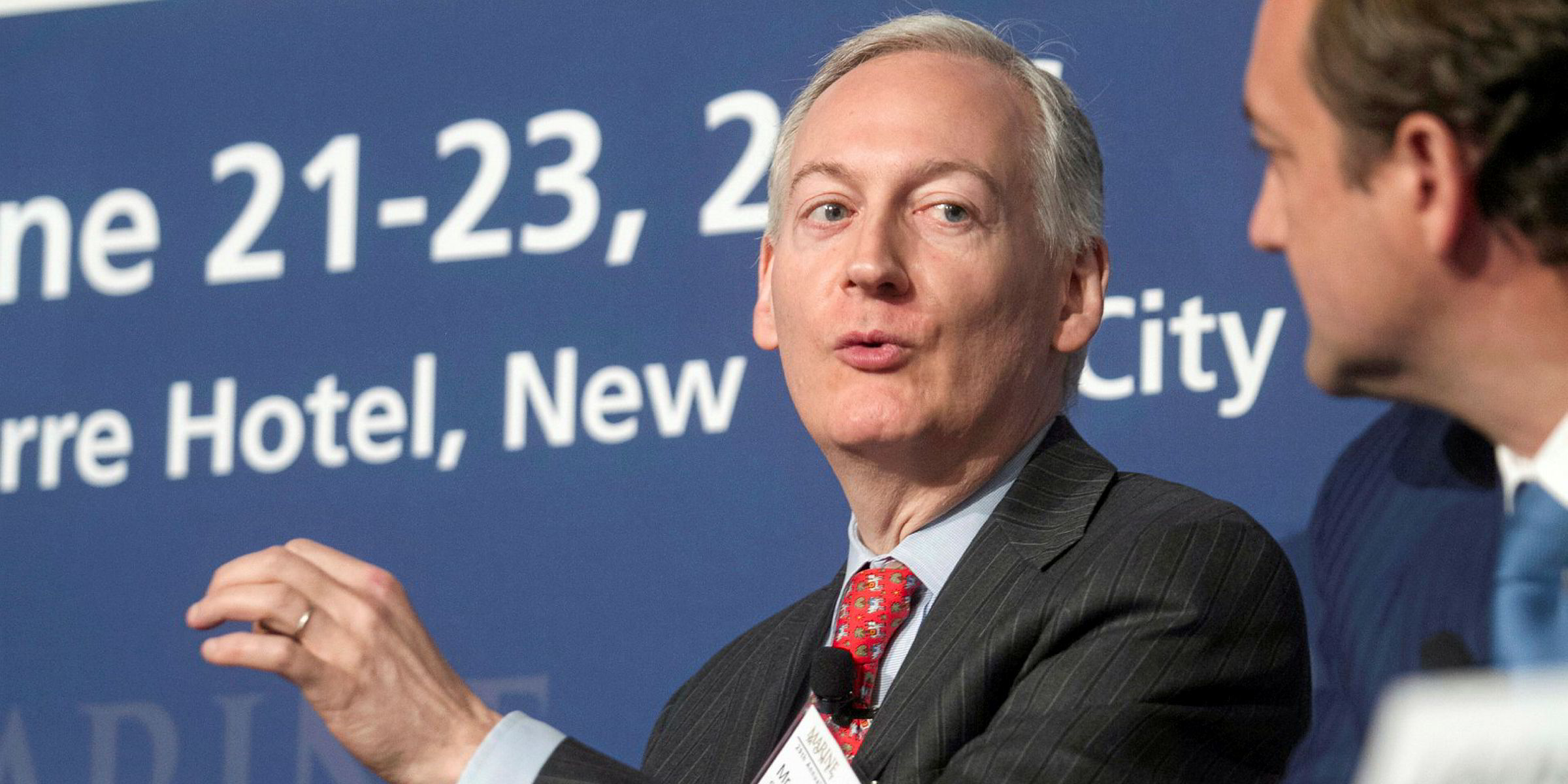
At the time the stock market was not differentiating between a company with a “half-decent balance sheet, strong management and a modern fleet” and those with “not so great management”, an old fleet and a “horrendous balance sheet”.
“Good and bad, there was no distinction,” Marcus says. “Everybody was just throwing everything out. We walked around saying ‘that means opportunity’," he says.
“When you have death and carnage in the industry, that is when we get excited about a commodity or cyclical-type business.”
First strike with Scorpio Bulkers
Marcus decided that while the market was down, all the ships owned by public dry bulk companies were not going to sink. He went away and did a lot of homework.
Two months later Scorpio Bulkers launched an equity offering designed to lengthen its liquidity runway.
Despite the share sale attracting criticism for diluting existing stakeholders, Evermore thought the time was right to make its first maritime investment.
“We do not have a problem with that so long as we are not the victims of it,” Marcus says.
“We are coming in as part of the dilution of the prior investors, who obviously invested too soon, because whatever they expected to happen didn’t happen.”
When Scorpio Bulkers came back to the market for more capital a short time later, Evermore was again a buyer.
“The reason we started here was the more we met with Robert Bugbee and Emanuele Lauro, we felt they know their business, they know it well,” Marcus says.
“They hit rocky patches — like many others had — but we liked the way they were thinking to push out the liquidity runway to make sure they could survive.
“We were not making a bet on day rates at this point. We were just trying to say, who do we think are the survivors? That for us was the first bet. That’s the low hanging fruit — who survives.”
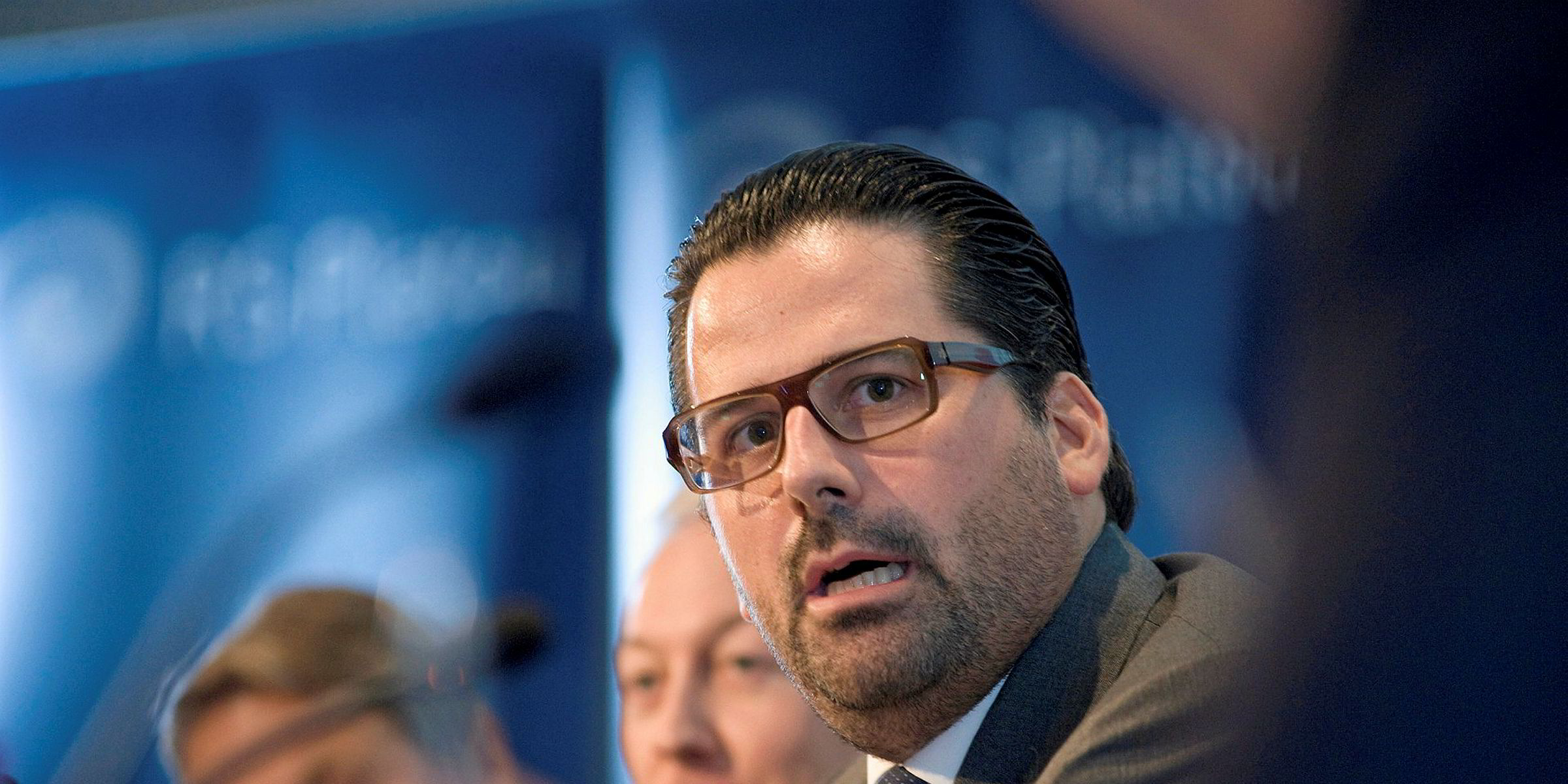
Now for the medium hanging fruit
Further dry cargo investments have followed in Safe Bulkers, Navios Maritime Partners and Songa Bulk as Evermore built out its shipping book.
Today the dry bulk market is much improved from the dark days of early 2016 but — despite Evermore seeing a threefold rise in its Safe Bulkers holding — Marcus does not think it is time to cash in his bulker chips.
“I think the low hanging fruit has been picked. But I don’t think we are doing any more than working our way towards the medium hanging fruit,” he says. “That means we are just really starting to see the fundamentals pick up.”
Evermore is closely watching newbuilding orders for warning signs, but Marcus feels contracting is still at rational levels. At the same time, the demand picture is improving thanks to a slow increase in Chinese imports.
“We did not want to make that part of our initial bet,” Marcus says. “We always wanted that to be the bonus, meaning that when you see demand growing that is a transformative event for this industry.
| Company | Shares held by Evermore (Source: Bloomberg) | Sector |
| Scorpio Bulkers | 6.32 million | Dry Cargo |
| Songa Bulk | 2.15 million | Dry Cargo |
| Safe Bulkers | 3.74 million | Dry Cargo |
| Navios Maritime Partners | 7.13 million | Dry / Container |
| Navios Maritime Containers | 2.74 million | Container |
| Hapag-Lloyd | 328,801 | Container |
| Frontline | 5.25 million | Crude Tankers |
"Now that is just at the front end, we are not going anywhere. China is not off to the races but it is coming alive here.”
Evermore still sees “huge upside potential” in Scorpio and other dry stocks. The view appears to be shared by some of Evermore’s US financial peers, who are starting to look towards shipping once again.
“The industry has been burned so much, so hard, so fast — the investors just got wiped out,” Marcus says. “But, at the end of the day, investors are thinking, how can I make money? It’s not Google, Facebook and all those other guys. Where is there still value? Guess what? Shipping is extremely undervalued, still.”
The investors looking at shipping today include new names that could follow Evermore’s lead. “It’s not just the same guys who got burned,” Marcus says. “Why is that? I don’t think there is just another group of suckers out there.

“Scorpio just started paying a dividend. It’s tiny but it’s the first step towards having a shareholder perspective and trying to be a little more institutional calibre. It’s a huge sea change when you start to see companies trying to pay dividend.”
He added: “We believe there is compelling upside from here. If we didn’t think that, we would not be here. We do not need to be married to these stocks. We are here to make returns for our investors, with acceptable levels of risk.”
Marcus says “shipping is rife with catalysts” but he feels other factors could help pull in investors still waiting on the sidelines.
“Some companies have weird management contracts where if they buy or sell a ship, management gets some sort of a fee,” he says, suggesting a commission based on profit may be more appropriate.
“Especially when you were headed into the crisis, there were a lot of deals going on. CEOs and a lot of insiders were making a lot of cash at the expense of shareholders. These guys were buying ships at all-time highs and getting paid a handsome thank you. Every purchase they made was a disaster.”
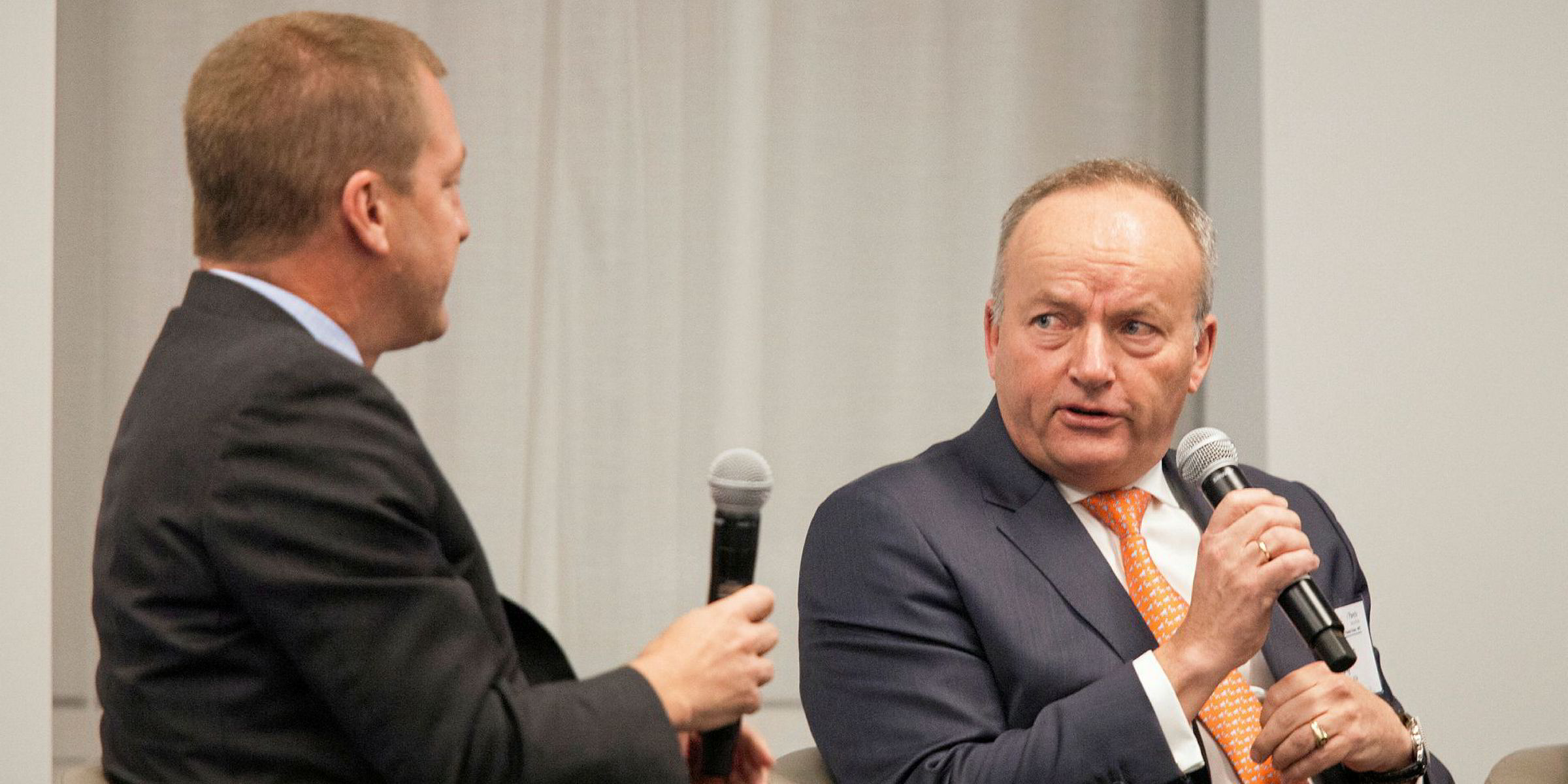
The more alignment management has to shareholders, the higher valuations will be, tempting a longer-term shareholder base to come in who are not afraid of volatility, Marcus explains.
Dividend payments, greater communication and increased transparency will also help to attract investors, he says. “You need to be clear with the shareholders, have communication and I think the more that happens it makes guys like us want to be involved more,” he says.
After its first moves in dry bulk, Evermore has also dipped into the container market, which is believed to be in the earlier innings of change.
Its first step was as an initial public offering investor with Hapag-Lloyd. This was followed by an investment in Navios Maritime Containers when it raised capital in Oslo.
Further stakes in Tor Olav Troim’s Borr Drilling and John Fredriksen’s Frontline have also been acquired. Today a little under 20% of Evermore’s $1.25bn in invested capital is made up of maritime stocks.
Its investments have not been based on the company alone but on key management. Marcus describes Bugbee as one of the smartest people in shipping.
He praises Navios chief executive Angeliki Frangou as among the best at sourcing distressed deals, while Hapag-Lloyd chief executive Rolf Habben Jansen is seen as “very underrated” and doing a “fantastic job”.
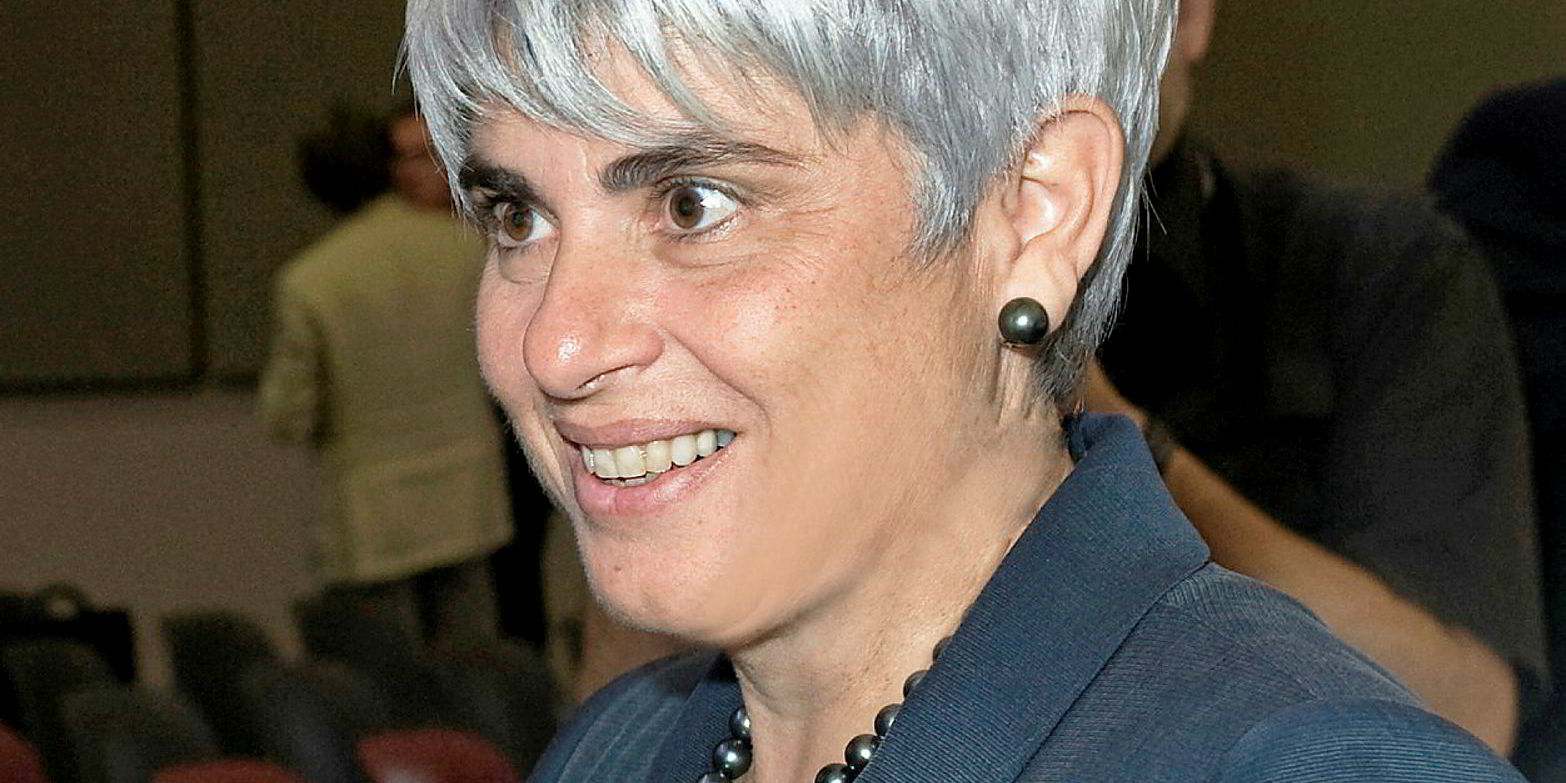
Executives working with Evermore were equally complimentary. Herman Billung, chief executive of Songa Bulk, said: “They have a really good understanding of this industry. People like to have them as shareholders and I consider them supporting long-term investors.”
Scorpio Bulkers chief Lauro says Evermore does its research on the industry, the companies and the opportunities. “They are not shy on giving their opinion but respect the teams they are backing. They are people one really wants to have success with. Great partners.”
Backing horses and jockeys
Marcus says: “When we meet management, we are not looking for secrets. Our attitude is horses can’t run around the track on their own; they need jockeys. We are not just buying horses, we are buying jockeys. We really have to understand who they are. We try to get to know the management, whether it’s Bugbee or Angeliki or Hamish.”
In short, Evermore wants to partner with people it can trust, Marcus says. “We are betting on people here,” he says. “It’s an assets and commodity business, but it's the decisions a couple of people are making that can determine if we are going to have success or failure. Especially when a rough patch comes — have they put any acorns away for the winter?”
With the exception of Frontline, Evermore has invested in shipping companies exposed to improving markets. However, it is aware the pendulum will swing both ways. “We are not less excited. We are no less excited than when we got in,” Marcus says.
“I think we were the first guys to the party. I really believe that. If you talk to the guys at Safe or Scorpio or Herman Billung at Songa, they would say they did not know us two years ago but now they know us well.
“We were probably one of the first groups that came in fresh, did our homework the old fashioned way and made our investments.
“Now others are following. I’m sure their investor relations people are getting lots of phone calls now. When we were calling two years ago, I’m sure they were picking up their handset to see if it still had a dialling tone.”

